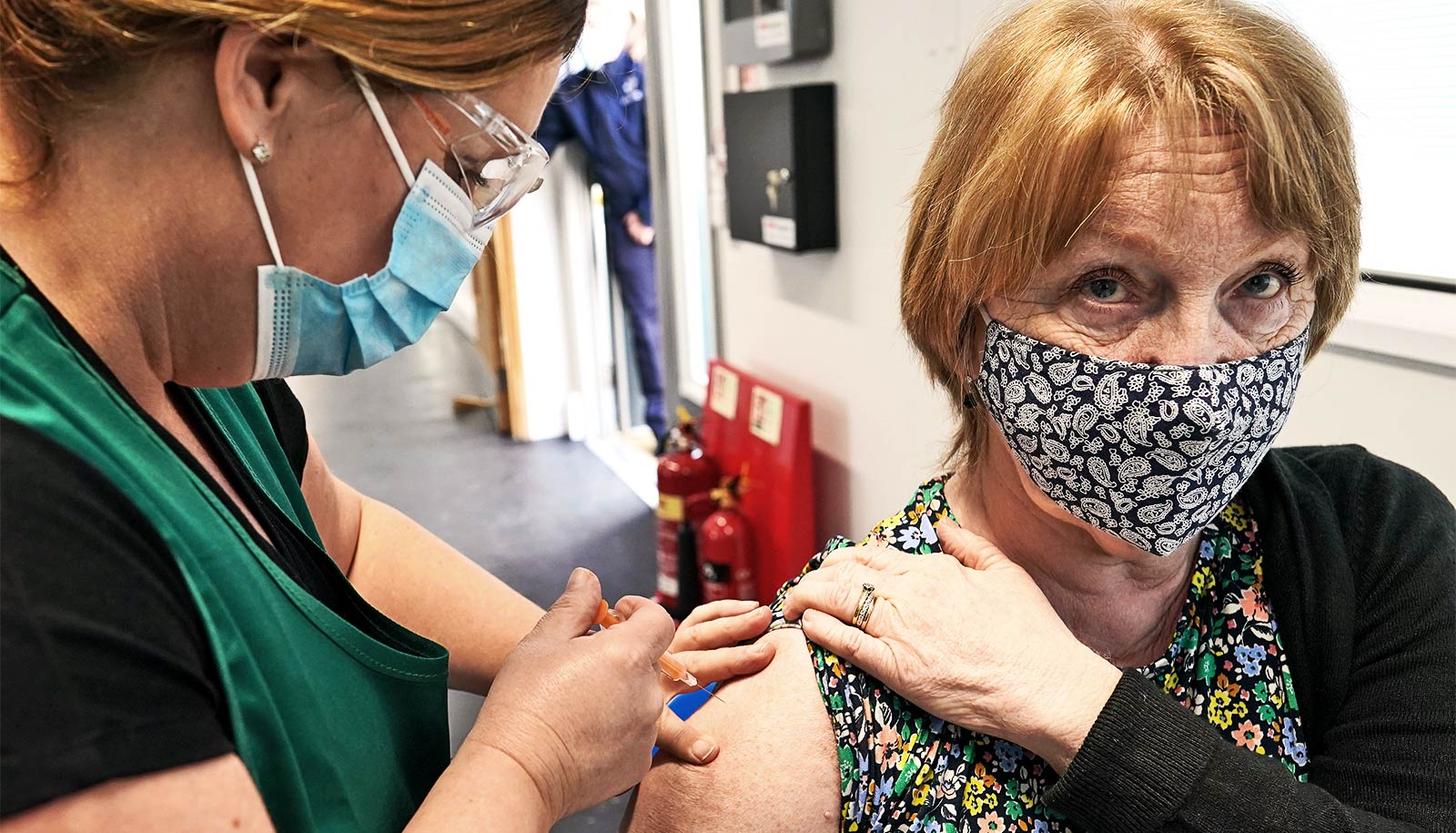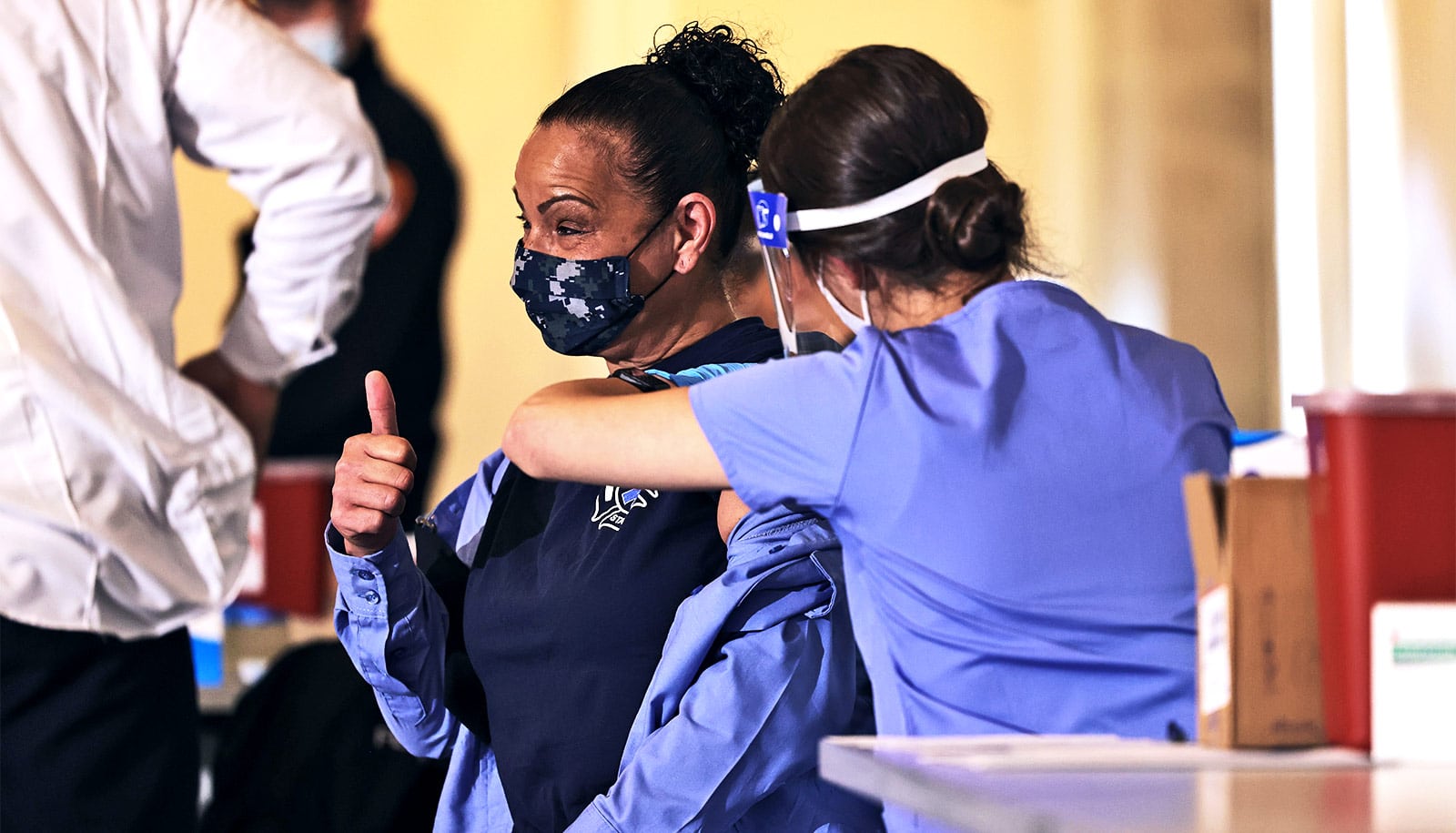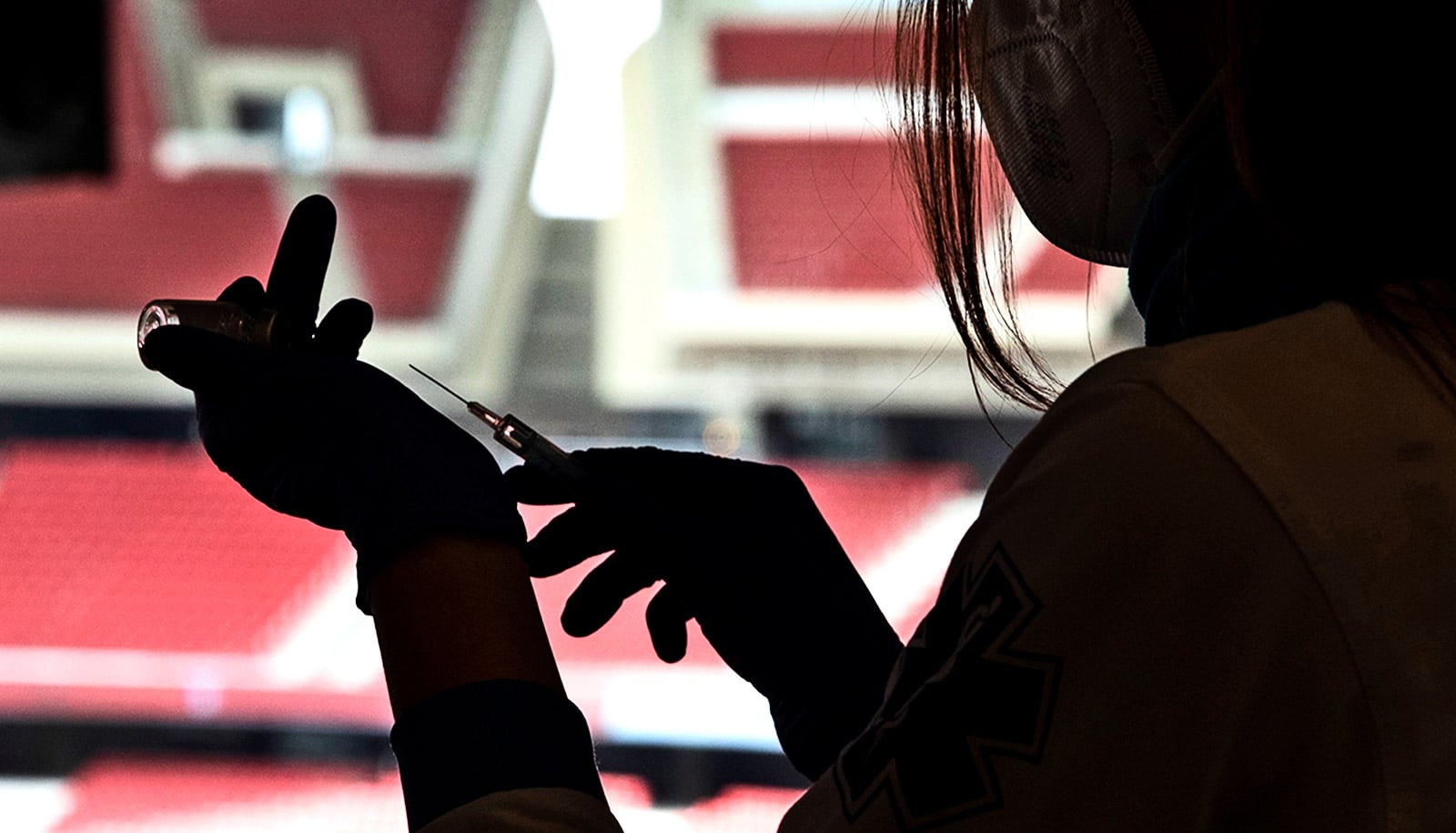Just 51% of Americans expressed a clear willingness to take the COVID-19 vaccine compared to 71% of residents in the United Kingdom, according to a study conducted during the first nine months of the pandemic.
“The data suggests that due to the confusion that existed in American politics, with even our leaders at the highest levels casting doubt on the pandemic, the scientific message was muddled in the US, whereas in the UK there was a unifying voice,” says Johannes Bauer, director of the Quello Center at Michigan State University and co-principal investigator of the research.
The study draws a striking contrast between the two English-speaking countries, identifying many factors that inform vaccination decisions. It reveals a failure in US politics and mass communication about the novel coronavirus that has complicated vaccination coverage levels needed to beat the pandemic in the US.
Factors associated with the willingness to get vaccinated for COVID-19 in the US include demographic indicators such as age, gender, income, and race. Black people were 64% less willing to get vaccinated than white people, a hesitancy that was unique to the US. Also, women were 43% less willing to be vaccinated than men.
Additional factors that make US residents reluctant or more willing to receive the vaccine include an individual’s concern about contracting the virus and their level of trust in the news media.
“Getting the facts about COVID-19 has been complicated further by the ongoing struggle among experts, as they seek to improve knowledge about the novel coronavirus and how it mutates and spreads,” Bauer says.
“The continuously changing information has been amplified in the media both online and offline, making it difficult to discern what is right or wrong, or simply outdated. The difficulty of sorting out correct information from misinformation has led many people to rely on general hunches and perceptions as they decide whether or not to get the vaccine.”
The study also found that trust was strongly associated with the willingness to get vaccinated, but the patterns differ in the two countries. People in the US with a higher general level of trust in others expressed more willingness to get vaccinated.
Trust in mass media reporting was positively associated with the willingness to get vaccinated in both countries, although the effect was lower in the US than in the UK. The researchers believe that this pattern results from different media systems in the two countries: The strong role of the BBC in the UK versus a polarized American media landscape combined with mixed messaging from the Trump administration.
“Unless we can build trust through messaging with vulnerable populations, we won’t reach a scientifically recommended vaccination rate of 70% to 85%,” Bauer says. “That aside, this is about people’s lives, so we must communicate that science tells us getting the vaccine is far better than getting COVID-19.”
In a policy brief based on the findings, researchers offered a set of short-term and mid-term measures to increase COVID-19 vaccinations rates in the US and in the UK.
Short-term measures include:
- Increase the amount of factual medical information across media channels, including transparency about the effectiveness of vaccines.
- Use community outreach and media campaigns to improve trust in vaccines, particularly among Black residents in the US.
- Increase efforts to provide clear information about vaccine safety to women in both the US and the UK.
Mid-term measures include:
- Increase the share of accurate medical and scientific information available about vaccine safety and efficacy.
- Work with traditional media and online information providers to develop measures that help consumers discern the quality of information and sources.
- Promote information literacy and digital literacy across the life span in people at all levels of education, from early childhood to old age.
Researchers collected data for the study nine months into the pandemic when the US was on the upswing of the third and largest wave of the pandemic. Meanwhile, the UK was on the upswing of the second wave, which was less severe. Though researchers conducted the study prior to the approval and distribution of the vaccines, Bauer says it speaks to the larger problem—over the last two decades, an increasing number of Americans are refusing to get vaccines.
“Even though vaccines have virtually eliminated the risk of many preventable diseases, we’ve confirmed a decades long trend of people unwilling to get vaccinated,” Bauer says, “We need to improve communication and information policy on vaccinations before we encounter another public health crisis.”
Additional coauthors are from the University of North Carolina, Charlotte, the Oxford Internet Institute, the University of Oxford, Clemson University, Reuters Institute, and Michigan State. The John S. and James L. Knight Foundation provided partial funding for the US costs of the study.
Source: Michigan State University



